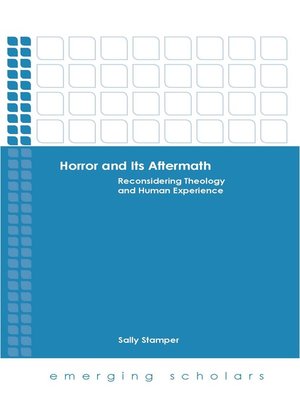Horror and Its Aftermath
ebook ∣ Reconsidering Theology and Human Experience · Emerging Scholars
By Sally Stamper

Sign up to save your library
With an OverDrive account, you can save your favorite libraries for at-a-glance information about availability. Find out more about OverDrive accounts.
Find this title in Libby, the library reading app by OverDrive.



Search for a digital library with this title
Title found at these libraries:
| Library Name | Distance |
|---|---|
| Loading... |
Theological anthropology often brings psychology to bear on the contingent nature of human existence in relationship to God. In this volume, Sally Stamper articulates one modern trajectory of theological recourse to psychology (comprising Schleiermacher, Nietzsche, and Tillich) as the ground on which she brings clinical psychoanalytic theory and early childhood studies into conversation with fundamental questions about the relationship of God to human suffering and its remediation. She develops her argument from the assertions that human experience evolves within an awareness of human vulnerability to profound suffering and that insight into consequent human anxiety is a powerful resource for soteriology, eschatology, and theological anthropology. Stamper narrates this "normative anxiety" by integrating object relations theories of early childhood development and critical readings of literary texts for young children. She gestures toward a new eschatological vision that poses the radical otherness of a transcendent God as key to divine remediation of human suffering, in the process building on Marilyn McCord Adams's soteriological response to human horror-participation and on Jonathan Lear's assertion of radical hope in response to catastrophic collapse of cultural resources for making meaning.







